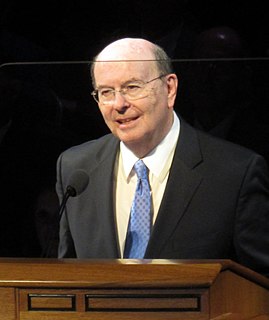A Quote by Plato
Evil is the vulgar lover who loves the body rather than the soul, inasmuch as he is not even stable, because he loves a thing which is in itself unstable, and therefore when the bloom of youth which he was desiring is over, he takes wing and flies away, in spite of all his words and promises; whereas the love of the noble disposition is life-long, for it becomes one with the everlasting.
Related Quotes
The marriage tie becomes possessed of a history and takes to itself traditions. This history and these traditions form a great fund, to which changing conditions and growing imagination constantly add. And the traditions, more especially, bear heavily upon the individual, overmastering his natural expression of the love instinct and forcing him to an artificial expression of that love instinct. He loves, not as his savage forbears loved, but as his group loves.
The chief evil with relation to the body is love for the body and pitying it. This takes away all the soul's authority over the body and makes the soul the slave of the body. And on the contrary, one who does not spare the body will not be disturbed in whatever he does by apprehensions born of blind love of life. How fortunate is one who is trained to this from childhood!
He loves us because He is filled with an infinite measure of holy, pure, and indescribable love. We are important to God not because of our resume but because we are His children. He loves every one of us, even those who are flawed, rejected, awkward, sorrowful, or broken. God's love is so great that He loves even the proud, the selfish, the arrogant, and the wicked.
If the grim realities you are facing at this time seem dark and heavy and almost unbearable, remember that in the soul-wrenching darkness of Gethsemane and the incomprehensible torture and pain of Calvary, the Savior accomplished the Atonement, which resolves the most terrible burdens that can occur in this life. He did it for you, and He did it for me. He did it because He loves us and because He obeys and loves His Father. We will be rescued from death-even from the depths of the sea.
When an American says that he loves his country, he means not only that he loves the New England hills, the prairies glistening in the sun, the wide and rising plains, the great mountains and the sea. He means that he loves an inner air, inner life in which freedom lives. In which a man can draw the breath of self-respect.
Feuerbach ... recognizes ... "even love, in itself the truest, most inward sentiment, becomes an obscure, illusory one through religiousness, since religious love loves man only for God's sake, therefore loves man only apparently, but in truth God only." Is this different with moral love? Does it love the man, this man for this man's sake, or for morality's sake, for Man's sake, and so-for homo homini Deus-for God's sake?
In bad or corrupted natures the body will often appear to rule over the soul, because they are in an evil and unnatural condition. At all events we may firstly observe in living creatures both a despotical and a constitutional rule; for the soul rules the body with a despotical rule, whereas the intellect rules the appetites with a constitutional and royal rule. And it is clear that the rule of the soul over the body, and of the mind and the rational element over the passionate, is natural and expedient; whereas the equality of the two or the rule of the inferior is always hurtful.








































